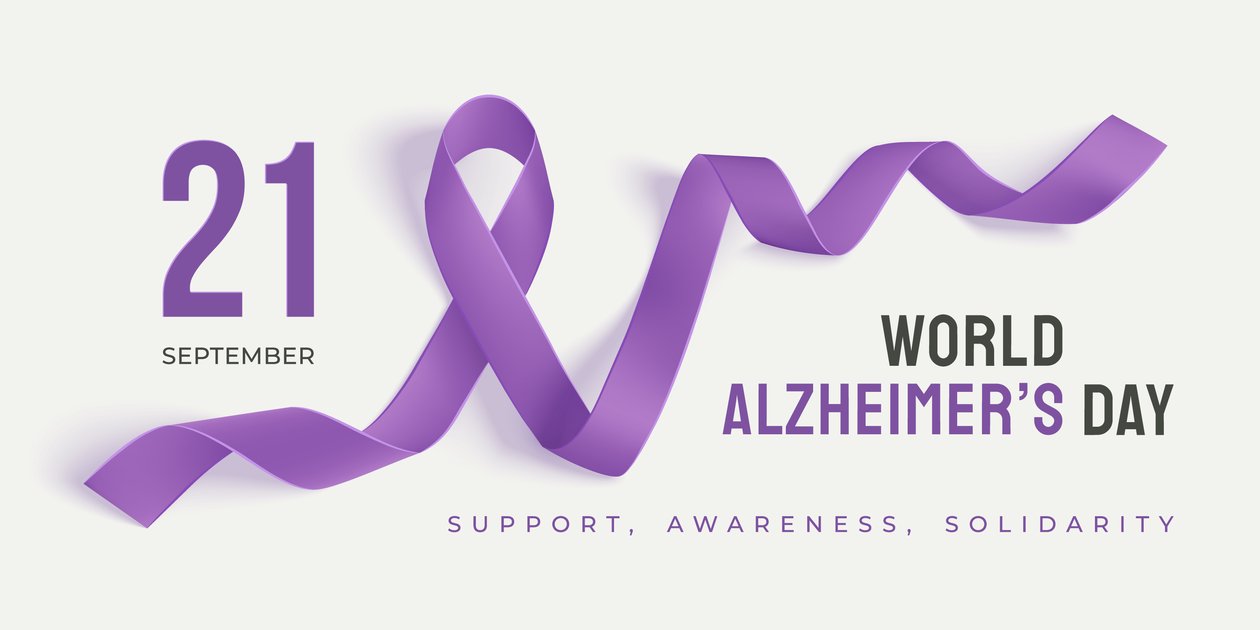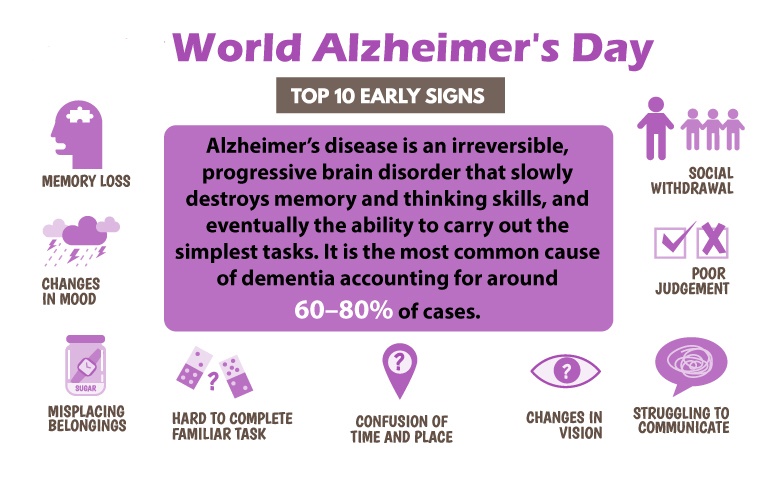World Alzheimer’s day
World Alzheimer’s Day is an international campaign to raise awareness and highlight issues faced by people affected by dementia. It is an opportunity for people and organizations to demonstrate how we can overcome these issues and help people live well with dementia. World Alzheimer’s Day takes place every year on 21 September. Alzheimer’s disease is a type of dementia that causes problems with memory, thinking, and behavior that impede daily functioning. Alzheimer’s disease is the most common form of dementia, affecting about 6 percent of people 65 and older. Scientists don’t know what causes Alzheimer’s, but they suspect it’s a combination of many factors. The disease affects parts of the brain that control memory, thought, and language. Let’s take a closer look at this event, and learn more about the disease.
Symptoms
Memory loss is the key symptom of Alzheimer’s disease. Early signs include difficulty remembering recent events or conversations. As the disease progresses, memory impairments worsen and other symptoms develop. At first, a person with Alzheimer’s disease may be aware of having difficulty remembering things and organizing thoughts. A family member or friend may be more likely to notice how the symptoms worsen.
Treatment
Treating the symptoms of Alzheimer’s can provide people with comfort, dignity, and independence for a longer period of time and can encourage and assist their caregivers as well. Galantamine, rivastigmine, and donepezil are cholinesterase inhibitors that are prescribed for mild to moderate Alzheimer’s symptoms. These drugs may help reduce or control some cognitive and behavioral symptoms. There is no cure, but experts think that lowering blood pressure, exercising, and not smoking may reduce the risk.
Prevention
- stopping smoking
- keeping alcohol to a minimum
- eating a healthy, balanced diet, including at least 5 portions of fruit and vegetables every day
- exercising for at least 150 minutes every week by doing moderate-intensity aerobic activity (such as cycling or fast walking), or as much as you’re able to
- making sure your blood pressure is checked and controlled through regular health tests
- if you have diabetes, make sure you keep to the diet and take your medicine


